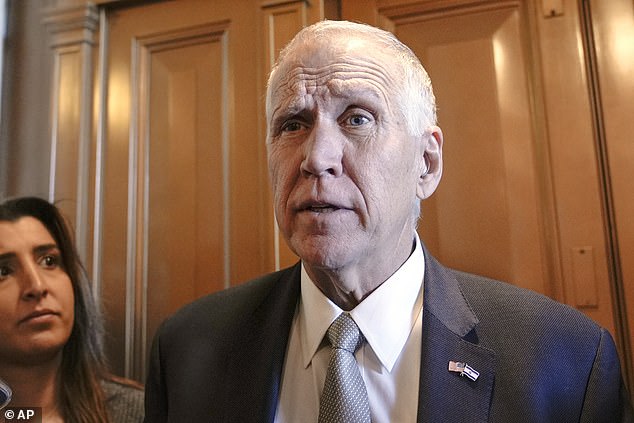Increase in death threats after TikTok vote forces Congress to update their phone lines: New switchboard system will better track ‘harassing’ calls after lawmakers flooded with Gen Z complaints
- Through the Administration Committee, the House is updating its system so that offices can identify callers connected through the switchboard system
- The administrative officer can now provide caller identification to US Capitol Police when an office receives a threatening message.
After congressional offices were inundated with threats over the new TikTok law, they’re finally getting caller ID.
Through the Administration Committee, the House is updating its system so that offices can identify callers connected through the telephone exchange system.
The House of Representatives administrative officer can now provide caller identification to the U.S. Capitol Police when an office receives a threatening message.
According to the memo, obtained by DailyMail.com, they will not be able to provide identification to callers who deliberately block their numbers, but it will make it easier for Capitol Police to track and investigate those blocked calls.
Phone lines went off the hook twice in a week when members of the House of Representatives passed a bill that could ban TikTok if it isn’t spun off from Chinese parent company ByteDance.
The callers consisted of crying children, some clearly calling from class, concerned parents and other users frantically trying to thwart the ban on their favorite social media platform.
After congressional offices were inundated with threats over the new TikTok law, they’re finally getting caller ID
TikTok sent push notifications to its U.S. users — more than 100 million — telling them that “your voice matters in ending the shutdown.”
The notification prompted users to contact their member of Congress to urge them to vote against the proposed bill.
The House China Select Committee last week accused CCP officials of using TikTok to spy on US users’ locations and dictate its algorithm to carry out influence campaigns, making it a national security threat.
Meanwhile, some calls coming into the Capitol offices threatened the lives of members of Congress, or others threatened to commit suicide if TikTok was banned.
“These changes will significantly enhance the U.S. Capitol Police’s (USCP) ability to identify and investigate individuals making threatening or harassing phone calls to Members’ offices and will provide staff with a number they can use to contact contact voters,” the memo said. by Administrative Committee Chairman Brian Steil, R-Wis., and Ranking Member Joe Morelle, D-N.Y.

Last week, Senator Thom Tillis released the audio of a phone call that came into his office threatening to shoot him
Last week, Senator Thom Tillis released the audio of a phone call that came into his office threatening to shoot him.
“Okay, listen. If you ban TikTok, I will find you and shoot you,” a child’s voice is heard between giggles.
“That’s people’s job and that’s my only entertainment,” the call continued. “Anyway, I’ll shoot you, find you, and cut you up.”
Tillis wrote on X that the TikTok “disinformation campaign is driving people to call their members of Congress, and that these types of callers making threats against elected officials could be committing a federal crime.”
